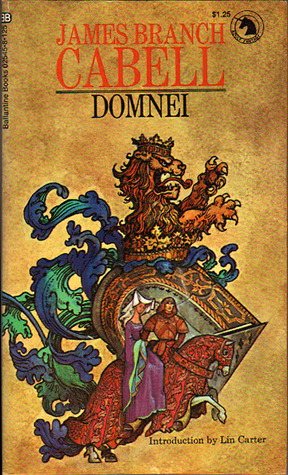What do you think?
Rate this book


224 pages, Mass Market Paperback
First published January 1, 1913

I think he worshipped where he did not care to love, as every man cannot but do when starkly fronted by the divine and stupendous unreason of a woman's choice, among so many other men, of him. And yet, I think that Perion recalled what Ayrart de Montors had said of women and their love, so long ago:— "They are more wise than we; and always they make us better by indomitably believing we are better than in reality a man can ever be." (p. 234)